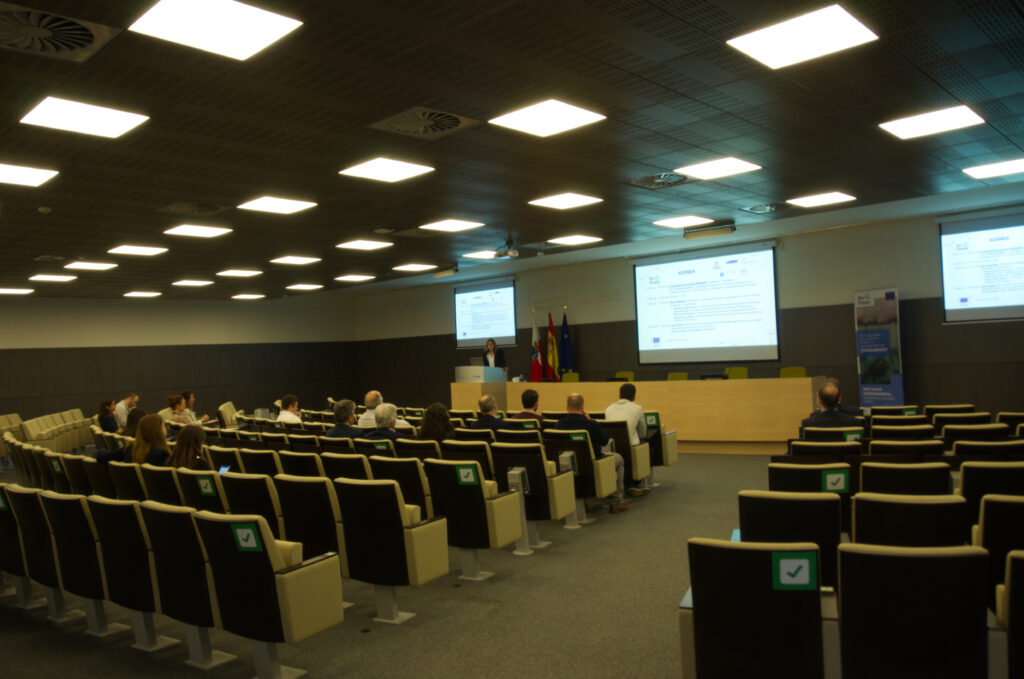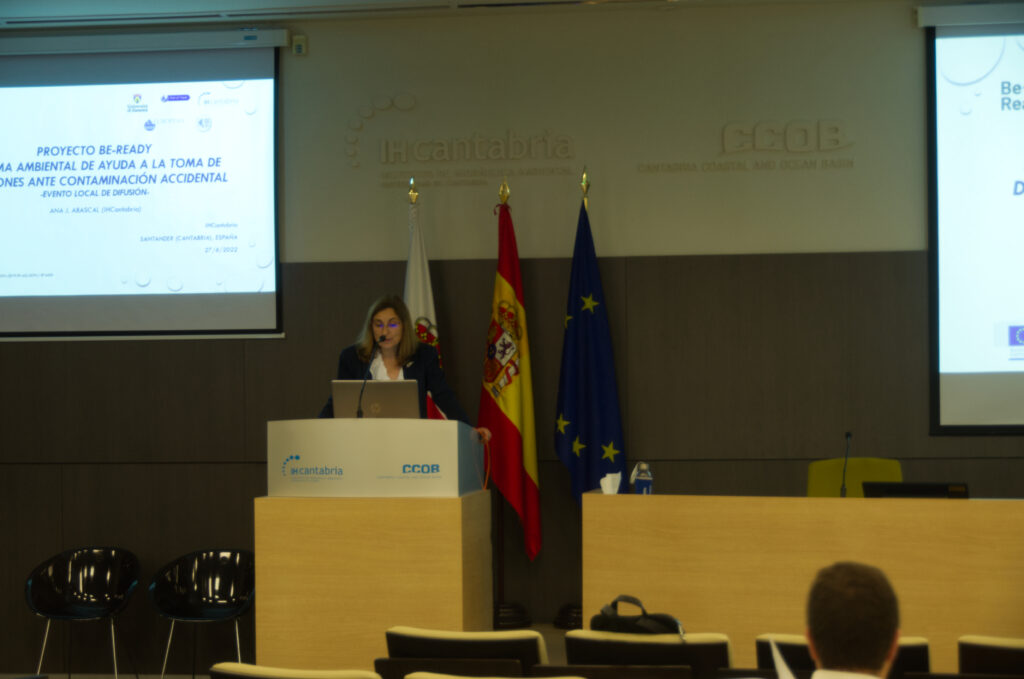

On June 27th, 2022, IHCantabria hosted the final BE-READY event, showing the project’s main results and products, namely the development of the Environmental Decision Support System, a tool to assist in decision-making in case of environmental emergencies due to hydrocarbon and HTS spillages.
To achieve this goal, important steps were taken to improve the state of the art in multiple fields, thus leading to advancements in the development of systems for predicting currents at the coastal and local scale, integrated models for oil and chemical spills, and methodologies for risk-assessment, resulting into a tool that is easily usable and exportable to any geographical location.
Specifically, IHCantabria has led one of the critical tasks of the project: the design and development of the decision support system (BE-READY DSS), which, by integrating the methodological results of the operational modelling of hydrocarbons and harmful substances, has resulted in the conception of a safe, robust and user-friendly tool for the end-user.
The final event at IHCantabria, moderated by Dr. Ana J. Abascal Santillana, principal investigator of the project and member of the Oceanography, Estuaries and Water Quality Research Group of IHCantabria – was attended by private and public entities involved in this field. The event included a round table on the most relevant aspects in the management of spillage accidents, and was attended by Germán Erostarbe Alacano, head of the Santander Rescue Coordination Centre; Julián Díaz Ortiz, coordinator of the Emergency Management and Coordination Area of the Government of Cantabria; Pablo García Palazuelos, industrial safety and occupational risk prevention technician of the Santander Port Authority; Andrés García Gómez, professor at the University of Cantabria and head of the Oceanography Group of IHCantabria; and Ana J. Abascal Santillana herself.
Finally, the day ended with the practical workshop “Demonstration of the capabilities of the BE-READY integral tool for rapid response to chemical and hydrocarbon spills” to train technical personnel involved in preventing and responding to accidental pollution on the use of this tool.
